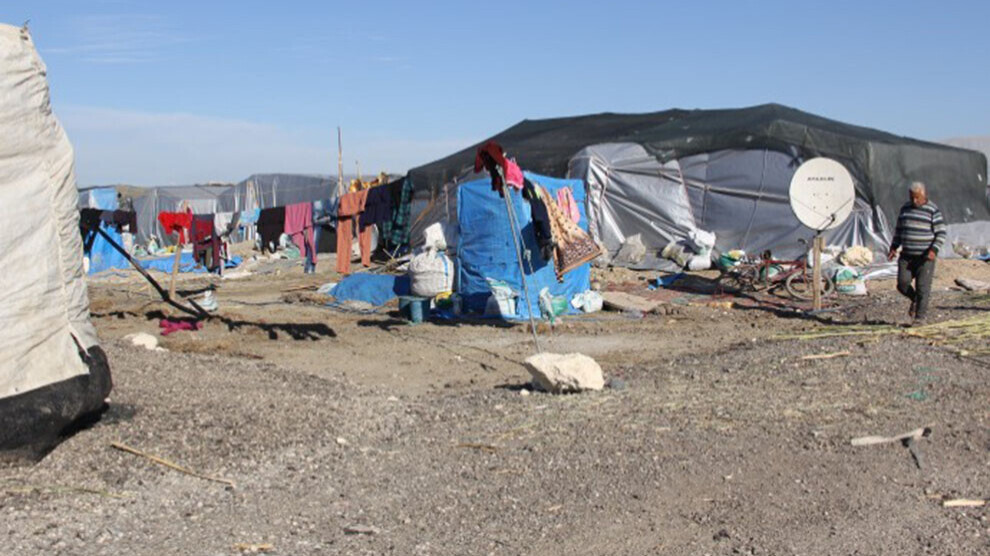HDP supports refugees in Mersin camp
Some 450 refugees live under catastrophic conditions in a refugee camp near Mersin. While the state is doing nothing, the HDP has taken practical steps to improve people's conditions.
Some 450 refugees live under catastrophic conditions in a refugee camp near Mersin. While the state is doing nothing, the HDP has taken practical steps to improve people's conditions.

Turkey receives billions of euros from the EU to keep refugees away from the EU and accommodate them in the country. What the EU would like to sweep under the carpet, however, is that the conditions in which refugees live in Turkey are catastrophic. Turkey is not giving any account on how it uses the EU funds that flow directly to the regime and the conditions in the refugee camps show clearly that the money does not get there. One example of this is the camp in Akdeniz near Mersin. The refugee camp there has existed for six years.
HDP shows solidarity with residents of the camp
Some 450 people from Syria live there at the moment. They are exploited in the region as day laborers in agriculture. Child labor is the order of the day. And so are fatal accidents involving farm workers. The most basic sanitary facilities are missing in the camp which actually looks more like a garbage dump. While neither the Turkish government nor the AKP local government are doing anything to improve the situation of the refugees, the People's Democratic Party (HDP) is committed to solidarity with the residents of the camp.
"Neither clean drinking water nor electricity"
Ihsan Derinöz, co-spokesman for the local government of the HDP in Mersin, reports on the camp conditions: “The people here had no clean drinking water or electricity for years. Especially in the winter months, water flows into the camp from everywhere and the whole area turns into a swamp. The Ecology Commission and the Union of Local Governments of our party have therefore started to work on this topic. First, drains were installed through which the water from heavy rains can also be drained.”
"Rain turns soil into a lake"
The rain is a huge problem on the flat terrain, says Derinöz adding: “The soil is practically transformed into a lake. It is then impossible to get from one tent to the other. The problem of toilets, which has also existed for a long time, also needs an urgent solution. We temporarily sealed the cesspools with tarpaulin. Otherwise the wastewater will run directly into the groundwater. This is a place where animals like flies and beetles can transmit all kinds of diseases. The intervention provided at least minor improvements.”
 ©MA
©MA
A hundred trucks of gravel
Derinöz said that cleaning work was initially started and explains: “When we came here for the first time, three or four months ago, we saw that the refugees were living on rubbish dumps. We took 40 to 50 trucks of rubbish off the site. After cleaning, we scattered 100 truckloads of gravel. In this way we at least prevented a mud lake from forming there again in winter. The Mersin waterworks have drawn pipes for clean water. We have set up dumpsters, but there are still major humanitarian shortcomings in living conditions."
©MA
Disinterest in the authorities
Neither the AKP local government nor the government did anything for the people in the camp, says Derinöz adding: “Almost 450 people live in this camp, 100 of them children and young people. These children and young people receive neither education nor health care. The residents are forced to illegally obtain electricity and to tap into lines that run past the camp. These lines running on the floor represent a great danger for children playing."
"Three to four families in one tent"
Mustafa Ali from the camp reports on the conditions before the HDP intervention: “We all lived in the mud. There was rubbish everywhere as there was no place to dispose of garbage."
©MA
As to basic needs, Ali said: "We bought the tents ourselves. Three to four families live in one tent. In particular, we need education and health care to be provided."